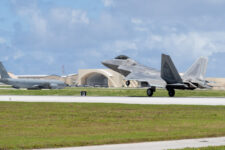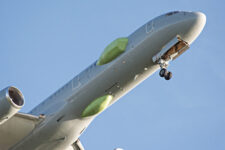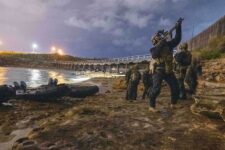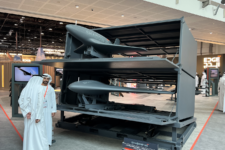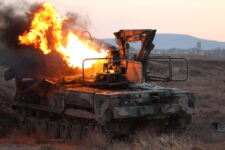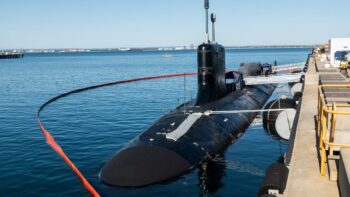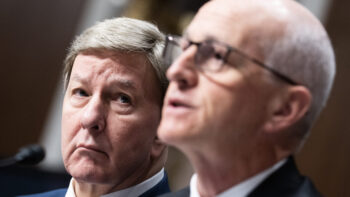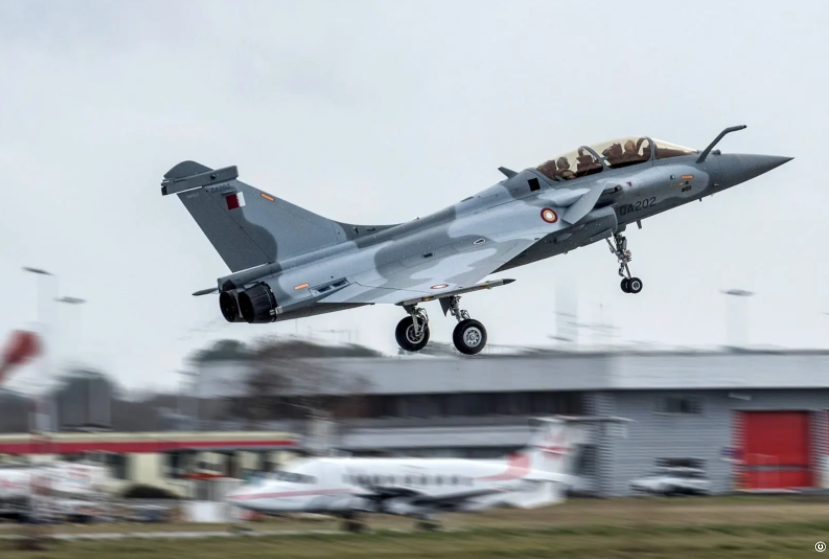
A Qatari Rafale Jet (Dassault Aviation)
DUBAI: After an unprecedented spending spree that is set to increase its number of warplanes by 900 percent, the Qatari government finds itself wrestling with a logistics problem: how the small oil-rich nation of 550,000 people will man and operate its now vast arsenal of weapons.
A plan appears to be underway, with the Qatari government intending to station some 36 of its warplanes and transporters in Turkey under a five-year-long “temporary deployment” agreement. But that move could create political headaches for both nations, with the French government having to weigh domestic politics and a desire to expand its defense industrial footprint in the region.
The agreement, in the works for some time and finally signed by the Chiefs of Staff of both countries in Doha on March 2nd, 2021, allows Qatar to deploy jet fighters and transporters from Turkish bases for the purpose of training and providing support within the host country’s airspace.
According to Qatari and Turkish press reports, some 12 Qatari Rafale fighters and 10 Mirage 2000 warplanes, along with C-130J Super Hercules and C-17 transporters, will be deployed in Turkey under the agreement (There is no clear information on when Qatar intends to deploy its planes to Turkey.) Its a strengthening of the relationship between the two countries; Turkey has a military base in Doha with some 5,000 troops stationed there.
The agreement, which has not been made public officially but was leaked to the media, mentions that Qatar will be building the required facilities to accommodate the warplanes, along with its pilots and support crews.
The agreement gives Qatar a place to base its new warplanes and train its pilots, while consolidating relations with Turkey. Ankara, meanwhile, gets to strengthen its geo-strategic position by ensuring firm military ties with a major oil and gas producer in the middle of Gulf Arab states bordering one of its main regional competitors — Saudi Arabia. Looking down the road, the basing of the fighter jets could become permanent, and Doha might even consider donating them to Ankara as a token of appreciation, if approval is granted from Paris.
According to industry sources and experts, deploying offensive warplanes in a foreign country requires the prior approval of the country where the planes were built — in this case France, where government officials have maintained silence on the issue.
Breaking Defense reached out via email to the French Ministry of Defense (MoD) seeking comments on the Turkish-Qatari pact. The French MoD acknowledged its awareness of the agreement and pointed out that “only paragraph 15 of article 4 concerns fighter planes and that it is only mentioned that in the event of the flight of (Qatari) fighter planes a Turkish plane must be part of the flight.”
The agreement also allows for the Turks to have at least one observation officer on a Qatari transport plane. Notably, the agreement does not touch on whether a Turkish officer would be allowed to fly the Qatari planes, or to fly in a two-seat variant of either the Rafale or Mirage. (Qatar operates both single-seat and two-seat fighter jets; it is unknown at this time whether any two-seat variants would be among those placed in Turkey.)
Further questions about whether the MoD approved the deployment of the French-built fighters in Turkey or has signed off on them being flown by Turkish pilots were not returned by press time. However, some experts believe Paris might see benefits in permitting the deployment of the Qatari fighters, despite likely domestic opposition and possible reservations from foreign players.

Could Turkish military pilots fly Qatari planes? (Sean Gallup/Getty Images)
According to Justine Mazonier, a French independent security consultant, this agreement could give the French defense industry a step towards penetrating the Turkish market — a long sought goal.
“France tried for many years to enter the Turkish market (despite the arms embargo in 2019). The Turkish military staff would be able to assess the quality of the French material and define for themselves their own operational needs,” Mazonier said.
Turkey’s relationship with many of its NATO allies has become strained in recent years, but Mazonier said that French-Turkish relations have quietly been on an upswing in 2021.
Still, the French defense industry will need to tread carefully, given that Greece — whose longstanding strains with Ankara have become only worse thanks a dispute over oil and gas fields in the Mediterranean — has recently started taking delivery of 18 Rafale fighters from France. And domestic politics can’t be ignored.
“I imagine it will not be easy for (French President Emmanuel) Macron to overtly have French warplanes in Turkey given his domestic struggles around Islam and Arabs in France. Certainly being seen as getting close to the Turkish leader would not be good for him in an election year,” said Pete Moore, Visiting Kuwait Chair at Paris School of International Affairs.
There is a clear hole in Turkey’s military fleet that the Rafale could fill. Ankara’s decade-long plans to acquire the fifth generation F-35 Joint Strike Fighter from the US was dashed after its contract with the United States was cancelled due to Ankara’s purchase of the Russian S-400 air defense system.
France is unlikely to have the same concerns the US did about the S-400 gathering information on the stealthy fighter, as the Rafale lacks that capability and has been in service much longer than the F-35, said Mazonier.
She added that the Qatari fighters in Turkey will not likely be armed and therefore “Turkish observers placed in the cockpit would only be able to assess the flight endurance of the Rafales during the exercise” without having access to sensitive systems on the warplanes.
Balancing Act
Many experts believe Qatar has a serious problem in absorbing the large quantities of warplanes and naval ships it purchased right after its 2017 crisis with its Arab neighbors — Saudi Arabia, United Arab Emirates, Bahrain and Egypt — that broke off relations and imposed a blockade on it. When the dispute ended last December and relations were restored, Qatar suddenly found itself with a lot of gear and no clear path forward.
“The reason for the Qatari military build-up is mainly the perception, rightly or wrongly, that Saudi Forces (probably with support from other allies) were going to invade Qatar in 2017 and engineer a ‘regime change,’” said Gawdat Bahgat, Professor of national security at the National Defense University’s Near East South Asia Center for Strategic Studies.
Up to 2017, the Qatar Air Force was made up of one squadron of 12 Mirage 2000 warplanes, 18 transporters (C-17, C-130J, Boeing 707 & 727 and Airbus 340), 21 PC-21 Pilatus trainers and 46 helicopters for utility and attack missions.

Sheikh Tamim bin Hamad Al Thani approved a major increase in military spending over the last seven years. (Alexander Hassenstein/Getty Images for IAAF)
But since then, Qatar has signed contracts worth at least $30 billion to purchase a wave of new equipment, including 36 F-15QA jetfighters and 24 Apache helicopter gunships from the US, some 24 Eurofighter Typhoon warplanes and nine Hawk trainers from Britain, 28 NH-90 helicopters from Italy, and 36 Rafales and 2 A330 MRTT aerial refueling planes from France. The Qatari Navy, meanwhile procured eight new vessels, which will nearly double the size of the fleet. The deliveries of these aircraft, corvettes and offshore patrol boats started this year and expected to end in 2024.
Put another way: the number of modern attack jets in the Qatari Air Force arsenal is to increase nine times over a seven year period — with about 108 new warplanes, and their fleets of helicopters will more than double in size.
That raises the obvious question of where Qatar can find the manpower for their new arsenal, and where will it train them.
The deal with Turkey could be one of the ways that Qatar could go about achieving the training part. Qatar has reportedly signed a contract with Boeing to train its pilots in the United States, and is close to concluding a deal to purchase M-346 advanced trainers from Leonardo and to train pilots in Italy.
Qatar could also end up commissioning officers from abroad to serve in its Air Force and Navy to fill up the likely big gaps in manpower shortage. Commissioning foreign officers, especially from European and American military and ex-servicemen from some Arab and Muslim countries, is common in the Gulf Arab States.
“Expanding the air force and navy can be seen as an ‘insurance policy.’ The royal family perceived the threat of a regime change as an existential threat,” Bahgat said. “The only way to address this threat was also to ally with another major regional power — Turkey.”
Hypersonic missile defense deserves predictable and sustainable funding
Keeping the Glide Phase Interceptor program on track needs to be a priority for the new administration and Congress, writes former NORTHCOM officer Howard “Dallas” Thompson.

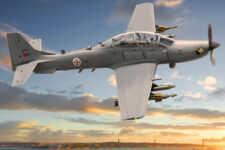
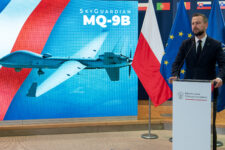
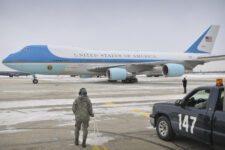

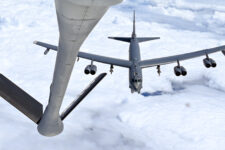

![RS179755_PMCS2620-FCAS-JPN-5A[1x1]](https://breakingdefense.com/wp-content/uploads/sites/3/2024/12/RS179755_PMCS2620-FCAS-JPN-5A1x1-e1734095138256-225x150.png)
